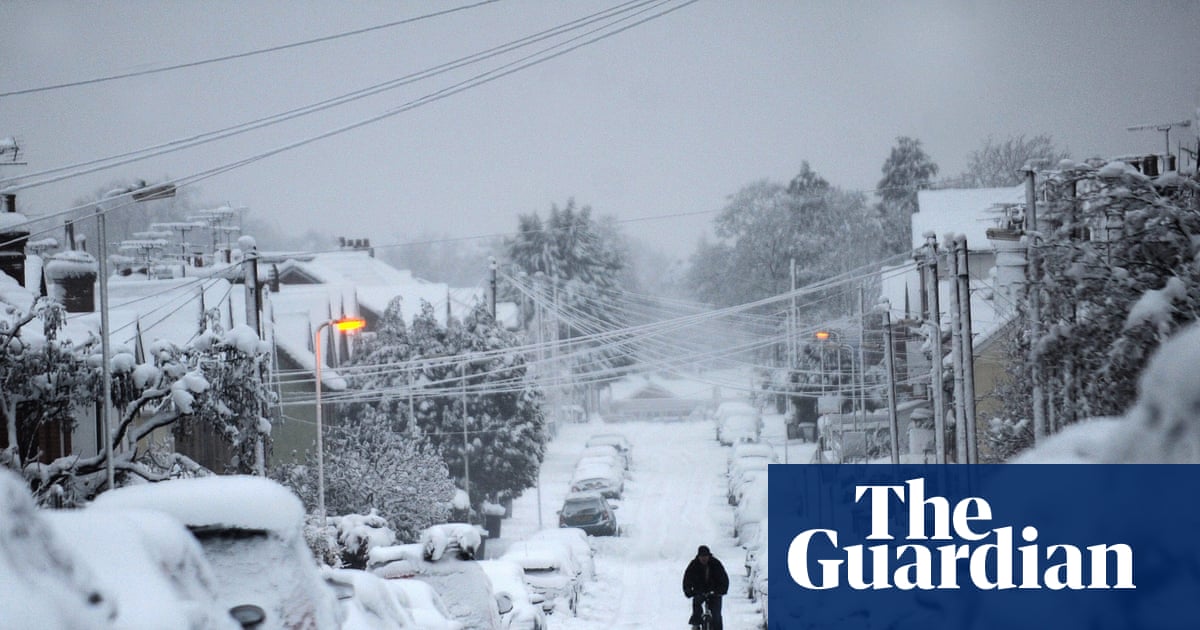A host of eminent scientists have warned politicians, business and community leaders that the UK risks severe climate-related risks to its economy, public health, food systems and national security.
According to its organisers more than 1,000 corporate bosses, senior civil servants and civic leaders were set to assemble in the Methodist central hall in Westminster for the “first-of-its-kind national emergency briefing” on Thursday morning.
“This event is about resetting the national conversation, especially in the face of growing misinformation,” said Prof Mike Berners-Lee, the climate writer and pioneer in carbon footprinting, as he introduced the talks.
Nine experts gave stark assessments of the scale of the changes needed to adapt the country to the rapidly changing climate and ecological situation, and potentially stave off the worst potential outcomes.
Speaking on climate, Kevin Anderson, professor of energy and climate change at the Universities of Manchester, Uppsala and Bergen, said: “The choice is between deep, rapid and fair decarbonisation of modern society, and an organised-ish technical and social revolution; or ongoing rhetoric and delay as temperatures [rise]. And then we’ll have a revolutionary style change that will be both chaotic and violent.”
On nature, Nathalie Seddon, professor of biodiversity at the University of Oxford, said: “We are facing a national emergency not only because the climate is changing, but because the living systems that protect the climate are breaking down.”
She added: “This isn’t about choosing between the economy and the environment. It’s about recognising that the economy is embedded within the environment, and that the health of the nation depends on the living systems that sustain us.”
Tim Lenton, director of the Global Systems Institute at the University of Exeter, said that a collapse in the Atlantic meridianal overturning current (Amoc) would leave London freezing in winters of -20C, “and yet the summers would still be hotter than today’s”, leading to a situation where the UK would be 100% reliant on food imports. “We have got to do everything in our power to limit the amount of time we spend above 1.5C [above preindustrial temperatures],” Lenton said.
Mark Rylance was among the prominent figures who attended the briefing. Inequality is a core part of the climate problem, the actor told the Guardian. Echoing Anderson, he said: “The cost of living crisis is really an inequality crisis. They go hand in hand. What we have is such an unequal society. And it is a contributing factor to the climate crisis.
“I’m a very wealthy person and I have to do more about this. We have got to do more about our collective addiction.”
He accused billionaires of funding climate denying misinformation. “They do it because they don’t want people to act collectively, they want people to feel powerless. They should do better things with their money.”
Richard Nugee, a retired general, said politicians focused on the threat from Russia were failing to see the greater threat of the climate crisis. “Climate change is going to be a bigger problem than Russia,” he said. “It’s an insidious threat, one that has crept up. It’s going to do more damage than the threats they’re focused on now. But all they see is a resurgent Russia.”
He said politicians needed to ensure the UK could cope with the greater extremes of weather that were already apparent and going to worsen. The lack of action to ensure that vital infrastructure is resilient was leaving the country vulnerable to extreme weather, and open to attack from enemies who could perceive this weakness.
“Having spent most of my life fighting, I need to believe this country to be strong. The last thing I want to see is this country go to war. But we are not providing a sufficient deterrent, because we are not resilient enough [to the impacts of the climate crisis],” said Nugee.

